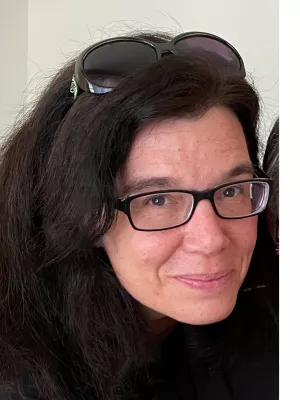
Christine Wamsler
Professor, Docent, appointed Excellent Teaching Practitioner (ETP)

Learning and community building in support of collective action : Toward a new climate of communication at the COP
Author
Summary, in English
The international UN Climate Change conferences known as “Conferences of the Parties (COPs)” have an enormous convening power and are attended annually by tens of thousands of actors working on climate change topics from a wide range of perspectives. In the COP spaces outside of the formal negotiations, the communication culture is dominated by “side events,” a format that relies heavily on conventional presentations and panels that can be informative, but is generally not conducive to mutual engagement, reflection, or dialogue. There is an urgent need for new dialogue formats that can better foster learning and community-building and thereby harness the enormous latent potential for climate action represented by the diverse stakeholders that gather at the COP. Against this backdrop, and drawing on our experience with the development and implementation of the Co-Creative Reflection and Dialogue Spaces at COP25, COP26, and COP27, we make recommendations for further developing the communication culture of the COPs. At the level of individual sessions, we provide recommendations for designing participatory dialogues that can better support reflection, interconnection, and action orientation. In addition, we offer guidance for scaling up these practices, for instance through networks and communities of practice to support a shift of the overall communication culture of the COPs. Our recommendations focus on interactions and exchanges that unfold outside of the formal negotiation sessions, with a view toward enabling and accelerating transformative action by non-state actors.
Department/s
- LUCSUS (Lund University Centre for Sustainability Studies)
- LU Profile Area: Nature-based future solutions
Publishing year
2023-03-05
Language
English
Publication/Series
Wiley Interdisciplinary Reviews: Climate Change
Volume
14
Issue
4
Document type
Journal article
Publisher
John Wiley & Sons Inc.
Topic
- Climate Research
- Social Sciences Interdisciplinary
Status
Published
Project
- Agents of Change - Mind, cognitive bias and decision-making in a context of social and climate change
ISBN/ISSN/Other
- ISSN: 1757-7799